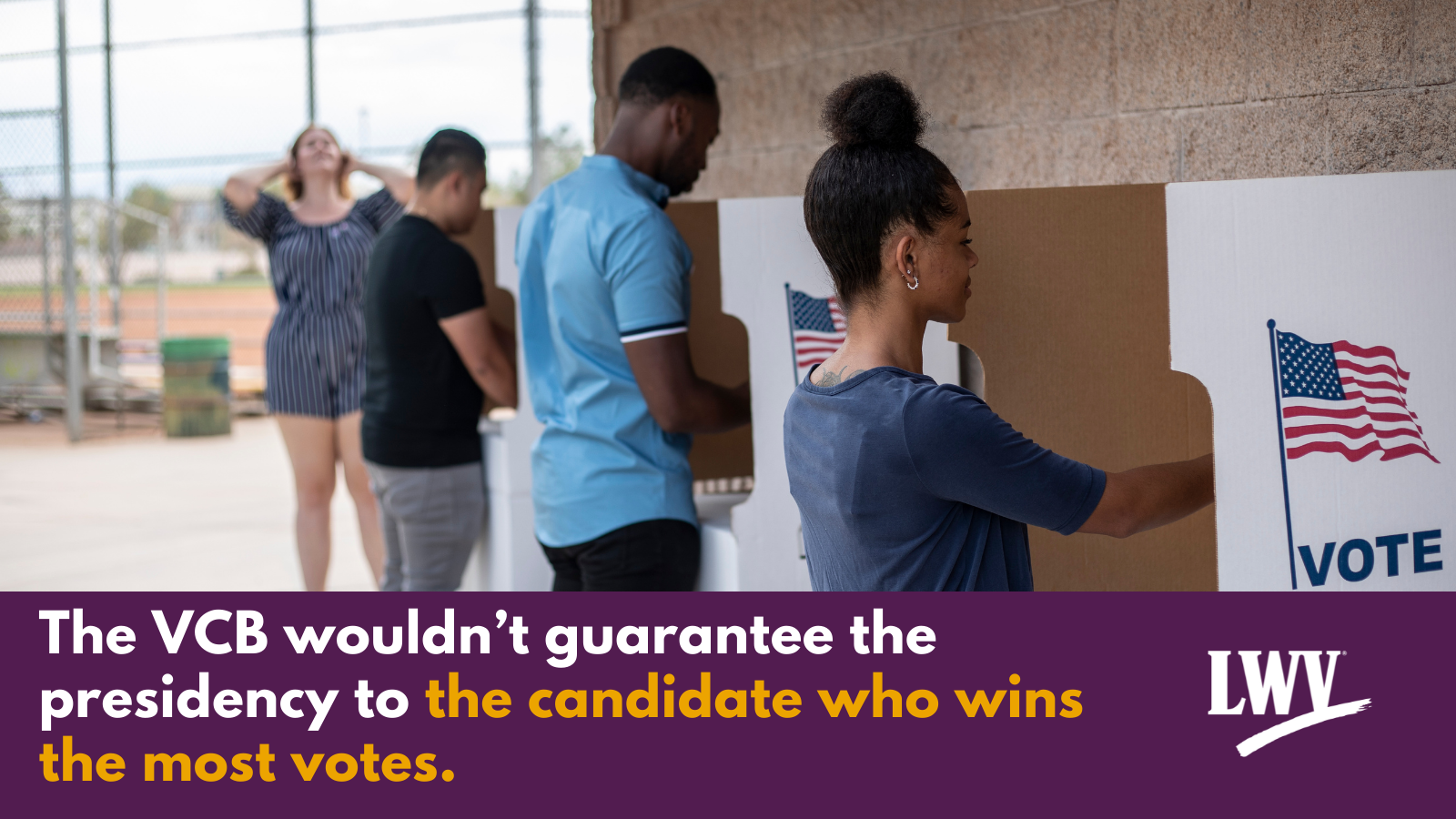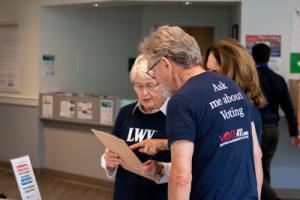- Joined
- Dec 1, 2017
- Messages
- 24,476
- Reaction score
- 7,808
- Gender
- Undisclosed
- Political Leaning
- Undisclosed
This blog was written by the LWVUS National Popular Vote Task Force.
The "Voter Choice Ballot" (VCB) is a new proposal for electoral college reform advocated by “Making Every Vote Count” (MEVC). With enough ‘yes’ votes, a state acting under the VCB would award its electoral votes to the candidate who’d won the nationwide popular vote, contingent upon voters’ responses to a ballot question (see below).
This is different from the National Popular Vote Interstate Compact (NPVIC), which has states award their electoral votes to the winner of the popular vote outright (i.e. voters are not asked the question below). The NPVIC would only go into effect when the states in the Compact collectively represent a majority of the electoral votes (at least 270 of 538), thus guaranteeing the presidency to the national popular vote winner. No such guarantee exists with the VCB proposal.
“Do you want the candidate who receives the most votes in the nation to become the President? If you do, fill in the oval next to YES.”
After the voter answers, the following statement is provided:
“The state will count the votes for all those who filled in the YES oval as cast for the winner of the national popular vote for the purpose of appointing electors as otherwise provided by this state’s law.”
Every voter who votes "yes" on the question but voted for anyone other than the national popular vote winner will have their vote transferred to the candidate who won the national popular vote.
The vague phrase “as otherwise provided by this state’s law” means that the vote just cast for President will be subtracted from the chosen candidate and added to the candidate that the voter just voted against if: (1) the opposing candidate is ahead nationally, even if (2) the voter’s choice is ahead in their state.
Simply stated, this proposal would prevent all votes from being equal and wouldn’t guarantee the presidency to the candidate who wins the most votes in all 50 states and DC.

 www.lwv.org
www.lwv.org
The "Voter Choice Ballot" (VCB) is a new proposal for electoral college reform advocated by “Making Every Vote Count” (MEVC). With enough ‘yes’ votes, a state acting under the VCB would award its electoral votes to the candidate who’d won the nationwide popular vote, contingent upon voters’ responses to a ballot question (see below).
This is different from the National Popular Vote Interstate Compact (NPVIC), which has states award their electoral votes to the winner of the popular vote outright (i.e. voters are not asked the question below). The NPVIC would only go into effect when the states in the Compact collectively represent a majority of the electoral votes (at least 270 of 538), thus guaranteeing the presidency to the national popular vote winner. No such guarantee exists with the VCB proposal.
The Ballot Question
Under MEVC’s proposed VCB plan, a voter would first vote for President and then vote on the following ”yes/no” question:“Do you want the candidate who receives the most votes in the nation to become the President? If you do, fill in the oval next to YES.”
After the voter answers, the following statement is provided:
“The state will count the votes for all those who filled in the YES oval as cast for the winner of the national popular vote for the purpose of appointing electors as otherwise provided by this state’s law.”
Every voter who votes "yes" on the question but voted for anyone other than the national popular vote winner will have their vote transferred to the candidate who won the national popular vote.
The vague phrase “as otherwise provided by this state’s law” means that the vote just cast for President will be subtracted from the chosen candidate and added to the candidate that the voter just voted against if: (1) the opposing candidate is ahead nationally, even if (2) the voter’s choice is ahead in their state.
The LWVUS National Popular Vote Task Force Opposes this Proposed Measure
Two of the significant reasons the LWV has both opposed the Electoral College for more than 50 years and supports the National Popular Vote (Interstate) plan are:- We support the idea that every vote should be equal.
- We believe that the candidate who wins the most votes for the presidency should be guaranteed the office.
Simply stated, this proposal would prevent all votes from being equal and wouldn’t guarantee the presidency to the candidate who wins the most votes in all 50 states and DC.
Our Concerns with VCB

Think Before You Ink: LWV Opposes the “Voter Choice Ballot” Proposal | League of Women Voters
The "Voter Choice Ballot" (VCB) is a new proposal for electoral college reform advocated by “Making Every Vote Count." With enough ‘yes’ votes, a state acting under the VCB would award its electoral votes to the candidate who’d won the nationwide popular vote, contingent upon voters’ responses...
Last edited:

